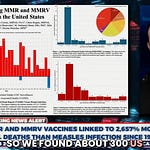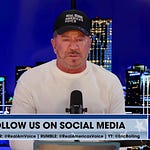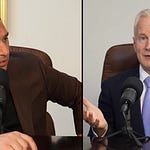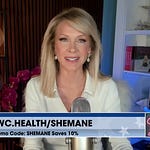By Peter A. McCullough, MD, MPH
Pharmaceutical advertising accounts for a significant portion of television advertising, representing somewhere between 10 and 12 percent of total TV ad spending. In some specific contexts, like national TV, prescription drug brands alone drive 11.6% of the total spend, according to iSpot.TV. This makes pharma advertising a major contributor to the television industry's revenue. Additionally, pharmaceutical advertising is particularly noticeable during news programs and early evening hours, with a focus on targeting older viewers, a demographic known for higher medication usage.
Do you ever wonder why NBC had no coverage of an entire series of Senate Hearings on COVID-19 vaccine safety? Well, Pfizer makes the BNT162b2 mRNA COVID-19 vaccine and they are also a large advertising client on the network for their drugs Eliquis and Xeljanz. Pfizer promotes Eliquis in partnership with Bristol Myers Squibb (BMS). They jointly develop and commercialize Eliquis, sharing profits and losses equally. Pfizer also includes Eliquis alliance revenues and direct sales in their financial reports, highlighting its significance as a revenue driver for both companies. Xeljanz is a popular and widely used drug for autoimmune diseases also promoted by Pfizer.
You can see that the advertiser can influence health reporting across the platform. NBC is probably reluctant to run any stories about Pfizer vaccine deaths for fear of losing their advertising contract with the pharmaceutical giant.
I explore this among other topics with L Todd Wood, Founder of CDM Press. Please enjoy and share the piece.
Please subscribe to FOCAL POINTS as a paying ($5 monthly) or founder member so we can continue to bring you the truth.
Peter A. McCullough, MD, MPH
President, McCullough Foundation












